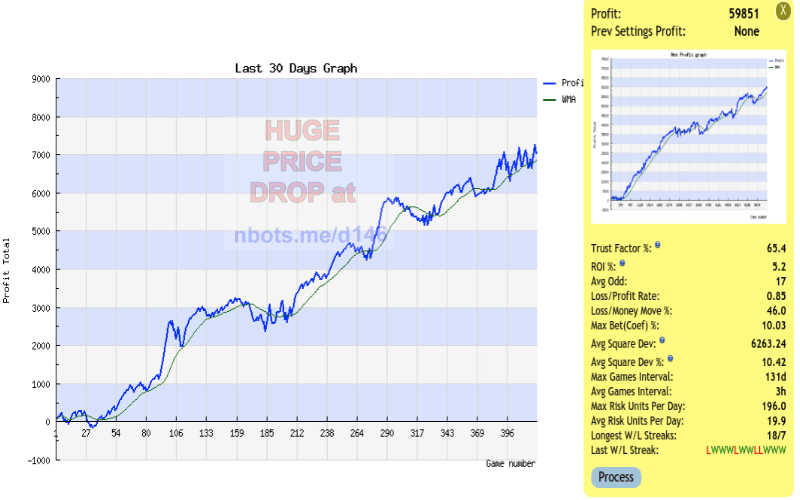If you have a 32-bit version of Vista, you can only upgrade to a 32-bit version of Win7. If you have a 64-bit version of Vista, you can only upgrade to a 64-bit version of Win7. To find out which one of these you can upgrade to, go to Control PanelSystem and look at System Type. MEETINGS: Musselburgh, Lingfield, Dundalk, and Chelmsford City All selections to win only for 0.50pt Musselburgh Race 4 3. Battle Of Wills Musselburgh Race 4 9. Jorgie Musselburgh Race 5 8. Spanish Jump Musselburgh Race 5 15. Big Jim Dwyer Musselburgh Race 7 8. Songofthelark Musselburgh Race 7 14. IMAGES PROVIDED BY: 1) 1971yes / Getty Images. 2) Gabriela Medina / Thinkstock. 3) Jupiterimages / Thinkstock. 4) Charles Dharapak / AP. 5) Hemera Technologies / Thinkstock. A place bet backs a selection to finish (place) within a range of finishing positions set by a bookmaker. It could be the top five places of the US Masters golf or the top three in a horse race.
Windows Update Cleanup: When you install updates from Windows Update, Windows keeps older versions of the system files around. This allows you to uninstall the updates later. However, if you don’t plan on ever uninstalling any Windows updates, this is a waste of space.
Permutation betting, or combination betting as it’s also
known, is similar to betting accumulators and multiples, because it
involves placing wagers on multiple selections. There’s a
significant difference however, in that you don’t need all your
selections to be correct to get a return.

Accumulator and multiples are individual wagers which contain
multiple selections, and they only return a payout if every
selection is correct. Permutation betting is the placing of a
series of wagers which covers multiple selections in various
different combinations, meaning you can still get a return even
if some are incorrect.
To fully understand how this form of betting works, you
should ideally be familiar with accumulators and multiples. If
you’re not, you should read the following article before
continuing on.
In this article, we explain permutation betting in more
detail, using examples and providing information on the various
combinations that can be placed.
The Basics
The basic idea of permutation betting is to maximize the
chances of making a return when backing multiple selections. It’s a way to still benefit from the higher payouts that
accumulators and multiples offer, without being exposed to the
risk of losing your entire stake if just one of your selections
loses. You do this by covering your selections in different
combinations.
Rather than placing one wager on all your selections, you
would place a number of wagers. Let’s say you pick four
selections. We’ll call them A, B, C, and D. You could place an
accumulator on all four, which means you’d need all four
selections to be correct. Alternatively, you could bet on all
the different doubles (A & B, B & C, C & D, etc.), and all the
different trebles (A, B, & C or B, C, & D, etc.).
By taking this approach, you would only need two of your
selections to be correct to guarantee a return, because you would at
least win one of your doubles. This is essentially the point of
permutation betting, to reduce the overall risk of betting on
multiple selections.

The best way to fully explain permutation betting, and the
benefits it offers, is to use some examples that show how it
works in practice.
Selectionsthe Place To Win System
Example 1 – Two Selections
Our first example is based on wagering on the following two
soccer matches.
If you thought both these matches would result in home wins,
you could place a double on Swansea and Liverpool. Let’s say you
did just that with a stake of $30. If both teams did win, you
would get a return of $77.70 including your stake for a profit
of $47.70. This payout is based on odds of 2.59, because the odds of
both your selections are multiplied for a double.
This is the big advantage of backing both teams in the one
wager; you get an increased payout due to the odds of the two
selections being multiplied. The disadvantage is that you have
to get both selections correct. If one of them loses, you get
nothing.
Now let’s say you decided to cover both selections using
permutation betting instead. You would place a total of three
wagers: a single on Swansea to win, a single on Liverpool to
win, and one double. We’ll assume you risk the same amount and
stake $10 on each of the wagers for a total of $30.
If both teams won, you would win all three of your wagers
with the following payouts.
- $10 on Swansea at 1.85 returns $18.50 including stake
($8.50 profit) - $10 on Liverpool at 1.40 returns $14.00 including stake
($4.00 profit) - $10 on the double at 2.59 returns $25.90 including stake
($15.90 profit)
Your total profit here is $28.40, which is obviously less
than you would have received had you simply placed $30 on the
double. However, if only one of the teams wins, you still get
some of your money back. You’ve sacrificed some of your
potential returns in exchange for risk reduction, which is
basically the main appeal of permutation betting.
Example 2 – Four Selections
Permutation betting gets a bit more complicated when it
involves more selections, primarily because you have more
options. Let’s take a look at an example where you’ve entered
four selections on your betting slip.
You could place an accumulator on these selections.
Alternatively, you could spread your risk through permutation
betting. The following options would be available to you on your
betting slip.
As you can see, you’ve got the choice of covering the
singles, doubles, and trebles, as well as the fourfold
accumulator. The great aspect of using an online bookmaker for
these types of bets is that they will automatically work out all
the combinations.
So if you wanted to bet $10 on all the possible doubles,
you’d just enter $10 in the box next to doubles. It shows you
that there are six doubles in total, so this would cost you $60.
If you also wanted to bet $5 on all the possible trebles, you’d
just enter $5 in the box next to trebles. With four in total,
this would cost you another $20.
This highlights a major benefit of permutation betting; you
can spread your risk however you choose. You can easily choose
to bet more on the doubles than the trebles, or vice versa. You
could put most of your stake on the fourfold to maximize your
potential return, with just some smaller amounts on the doubles
and trebles to provide some insurance in case one or more of the
selections fails to win.
There’s a simpler option, too. You’ll see there are a couple
more options on the betting slip; Yankee and Lucky 15. A Yankee
automatically covers all the doubles, trebles, and the fourfold
with an equal stake on each. So a $10 Yankee would cost you $110
in total: $10 on each of the six doubles, $10 on each of the
four trebles, and $10 on the fourfold. This is known as a full
cover bet, as you are covering all the possible combinations.

The Lucky 15 automatically covers everything that the Yankee
does, with additional wagers on each of the four singles. This
is known as a full cover with singles.
Full Cover Bets
Selectionsthe Place To Win Systems
There are several different types of full cover bets you can
place, depending upon the number of selections. The following
table shows all of them, with a breakdown of what they cover and
the total number of bets they include.
| Bet Type | Selections | Breakdown of Bets | No. Bets |
|---|---|---|---|
| Patent | 3 | 3 singles/3 doubles/1 treble | 7 |
| Trixie | 3 | 3 doubles/1 treble | 4 |
| Lucky 15 | 4 | 4 singles/6 doubles/4 trebles/1 fourfold | 15 |
| Yankee | 4 | 6 doubles/4 trebles/1 fourfold | 11 |
| Lucky 31 | 5 | 5 singles/10 doubles/10 trebles/5 fourfolds/1 fivefold | 31 |
| Super Yankee | 5 | 10 doubles/10 trebles/5 fourfolds/1 fivefold | 26 |
| Lucky 63 | 6 | 6 singles/15 doubles/20 trebles/15 fourfolds/6 fivefolds/ 1 sixfold | 63 |
| Heinz | 6 | 15 doubles/20 trebles/15 fourfolds/6 fivefolds/1 sixfold | 57 |
| Super Heinz | 7 | 21 doubles/35 trebles/35 fourfolds/21 fivefolds/ 7 sixfolds/1 sevenfold | 120 |
| Goliath | 8 | 28 doubles/56 trebles/70 fourfolds/ 56 fivefolds/28 sixfolds/8 sevenfolds/1 eightfold | 247 |